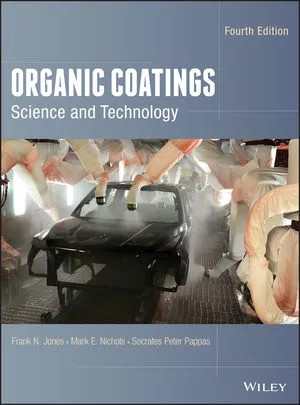IPC Urges EU Leaders to Incorporate Science in RoHS Directive Recast
IPC has released a white paper urging members of the European Union (EU) Council and Parliament to ensure that the revised RoHS Directive be scientifically based and fully aligned with the REACH Regulation.
IPC – Association Connecting Electronics Industries® has released a white paper, Recasting the RoHS Directive: An Opportunity to Solidify its Scientific Basis in Support of Comprehensive Environmental Regulation, urging members of the European Union (EU) Council and Parliament to ensure that the revised RoHS Directive be scientifically based and fully aligned with the Registration, Evaluation, Authorization and Restriction of Chemicals (REACH) Regulation. Copies of the white paper will be sent to members of the EU Council and members of the EU Parliament’s Environment Committee.
Of utmost concern to the electronics industry is an amendment proposed in the EU Parliament that bans all brominated and chlorinated flame retardants, polyvinyl chloride (PVC), chlorinated plasticizers and three phthalates. This amendment would weaken the scientific basis of the RoHS Directive and directly contradict the REACH Regulation, a comprehensive chemicals regulation that is setting a global standard for chemical safety.
Fern Abrams, IPC director of government relations and environmental policy says, “Restricting an entire class of compounds - brominated and chlorinated flame retardants - without a strong scientific basis risks wasting societal resources to develop and implement substitutes and potentially risks unintended consequences associated with alternative substances.”
According to the amendment proposed for consideration in Parliament, Tetrabromobisphenol-A (TBBPA), the primary brominated flame retardant used in printed boards, would be banned under a revised RoHS Directive. This would be a direct contradiction with the REACH Regulation. Several scientific studies of TBBPA, including a comprehensive EU Risk Assessment, found TBBPA to be safe for human health and the environment.
“Fully aligning the RoHS Directive and REACH Regulation would ensure minimal regulatory overlap and affirm the EU’s credibility throughout the world,” says Lee Wilmot, director of environmental health and safety (EHS) at TTM Technologies, and chairman of IPC’s EHS Steering Committee. “In order to ensure a positive impact on the environment, the recast of RoHS must improve the scientific basis of this important environmental directive and unify European chemicals regulations by aligning the RoHS Directive with the REACH Regulation. Any contrary action would be considered political jockeying that could adversely affect the environment at significant costs to industry.”
To download IPC’s white paper, Recasting the RoHS Directive: An Opportunity to Solidify its Scientific Basis in Support of Comprehensive Environmental Regulation, visit leadfree.ipc.org/recasting-rohs-directive.
IPC – Association Connecting Electronics Industries® has released a white paper, Recasting the RoHS Directive: An Opportunity to Solidify its Scientific Basis in Support of Comprehensive Environmental Regulation, urging members of the European Union (EU) Council and Parliament to ensure that the revised RoHS Directive be scientifically based and fully aligned with the Registration, Evaluation, Authorization and Restriction of Chemicals (REACH) Regulation. Copies of the white paper will be sent to members of the EU Council and members of the EU Parliament’s Environment Committee.
Of utmost concern to the electronics industry is an amendment proposed in the EU Parliament that bans all brominated and chlorinated flame retardants, polyvinyl chloride (PVC), chlorinated plasticizers and three phthalates. This amendment would weaken the scientific basis of the RoHS Directive and directly contradict the REACH Regulation, a comprehensive chemicals regulation that is setting a global standard for chemical safety.
Fern Abrams, IPC director of government relations and environmental policy says, “Restricting an entire class of compounds - brominated and chlorinated flame retardants - without a strong scientific basis risks wasting societal resources to develop and implement substitutes and potentially risks unintended consequences associated with alternative substances.”
According to the amendment proposed for consideration in Parliament, Tetrabromobisphenol-A (TBBPA), the primary brominated flame retardant used in printed boards, would be banned under a revised RoHS Directive. This would be a direct contradiction with the REACH Regulation. Several scientific studies of TBBPA, including a comprehensive EU Risk Assessment, found TBBPA to be safe for human health and the environment.
“Fully aligning the RoHS Directive and REACH Regulation would ensure minimal regulatory overlap and affirm the EU’s credibility throughout the world,” says Lee Wilmot, director of environmental health and safety (EHS) at TTM Technologies, and chairman of IPC’s EHS Steering Committee. “In order to ensure a positive impact on the environment, the recast of RoHS must improve the scientific basis of this important environmental directive and unify European chemicals regulations by aligning the RoHS Directive with the REACH Regulation. Any contrary action would be considered political jockeying that could adversely affect the environment at significant costs to industry.”
To download IPC’s white paper, Recasting the RoHS Directive: An Opportunity to Solidify its Scientific Basis in Support of Comprehensive Environmental Regulation, visit leadfree.ipc.org/recasting-rohs-directive.
Looking for a reprint of this article?
From high-res PDFs to custom plaques, order your copy today!




